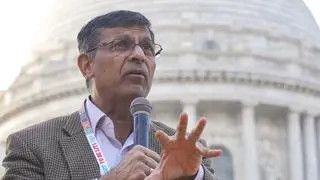Global wealth management company Credit Suisse has recently published its annual update to the Supertrends, its framework for long-term thematic equity investments in focusing on evolving investment trends amid Covid-19.
The Supertrends which were first introduced in 2017 have updated taking into account how the Covid-19 pandemic has upended the global economy.
“Our normal way of life has ground to a halt because of the coronavirus pandemic. This crisis is challenging existing systems and structures, sowing the seeds for further change ahead as we uncover limitations in how we learn, work and live. Our Supertrends continue to evolve with the changing world around us, and we believe that they remain compelling investment themes for today and the future,” said Michael Strobaek, Global CIO, Credit Suisse.
According to the report, the pandemic has reiterated the importance of the core five long-term investment trends while adding a sixth trend on climate change.
“Climate change – Decarbonizing the economy” trend is based on the investment case for companies that are involved with the transition to a less carbon-intensive world economy. The key areas of focus within this trend are carbon-free electricity production, transportation, oil and gas transition pioneers, and agriculture/food production.
Credit Suisse’s “Anxious societies – Inclusive capitalism” trend “reflects the fact that popular discontent is now focusing more clearly on issues at home, in particular inequalities, rather than on perceived outside threats and a move toward protectionism.”
According to the report, companies must understand from the COVID-19 pandemic that the real emerging threats to the economy are global and will require multilateral cooperation, along with individual protection.
The “Silver economy – Investing for population ageing” trend focuses on the ageing population who are likely to continue driving drive business opportunities and investment performance for future years.
“In particular, population ageing in emerging markets (EMs) will unfold at a speed not yet realized by most,” the report said.
The “Infrastructure – Closing the gap” trends focus on infrastructure spending that according to the organization “remains on the verge of a boom phase.”
“There are gaps everywhere as old economies struggle to address both existing as well as new needs, including a drive towards greater sustainability,” the report said.
“At the same time, new economies continue to urbanize at a fast pace. The expectation of lower, and sometimes even negative, interest rates for an extended period should provide the right incentive for investment,” it further said.
The trends also focus on the impact of technological innovations. The “Technology at the service of humans” trend talks about the innovation as well as the challenges uncovered by the Covid-19 crisis. The crisis had made technology a “compelling sector” for investors, it said.
The pandemic has put health and responsible consumption at the top of millennials’ agenda, the report said. According to the “Millennials’ values” trend, sustainability is one of the key themes.
“With health also at the top of the Millennials’ agenda, there is a growing demand for healthy, sustainable food: the planetary diet. Hence, along with the transition to a circular economy, we have incorporated sustainable food into this investment topic,” it said.







Comments
Comments have to be in English, and in full sentences. They cannot be abusive or personal. Please abide by our community guidelines for posting your comments.
We have migrated to a new commenting platform. If you are already a registered user of TheHindu Businessline and logged in, you may continue to engage with our articles. If you do not have an account please register and login to post comments. Users can access their older comments by logging into their accounts on Vuukle.